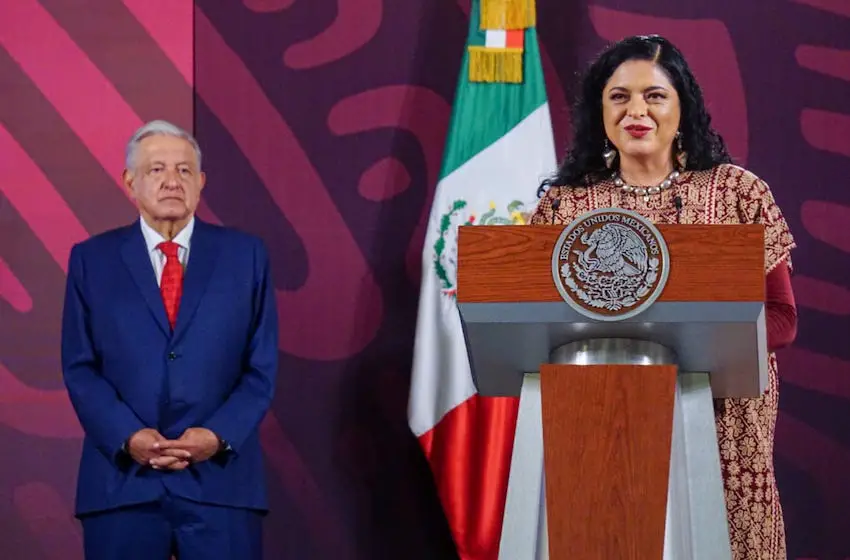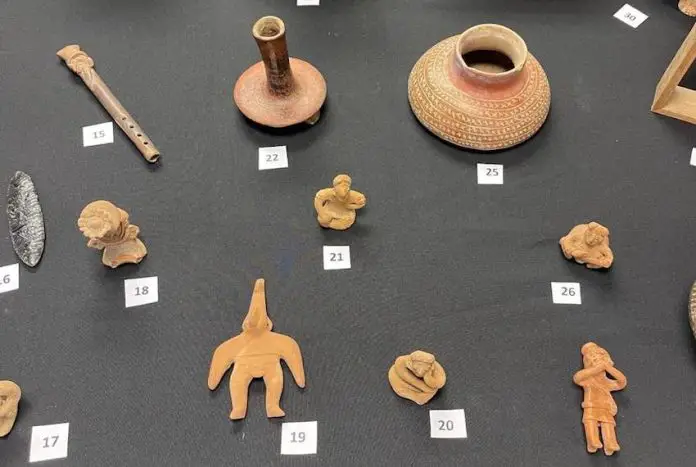Mexico repatriated 14,048 archaeological artifacts considered to be part of the country’s national heritage during President Andrés Manuel López Obrador’s six-year term, set to end on September 30.
“The recovery of historical memory, as well as the recognition of Mexico’s cultural roots, is a joint effort between various institutions of the federal government to dignify national history, cultural heritage, Indigenous peoples and the legacy of heroes and heroines,” the Culture Minister Alejandra Frausto Guerrero said at a press conference on Monday.

Frausto lauded the #MiPatrimonioNoSeVende (#Don’tTouchMyHeritage) campaign, launched in 2021 to establish new protocols and legal strategies to repatriate items illegally taken from Mexico.
According to Frausto, this initiative brought the issue of illicit trafficking of cultural property to the global stage. As a result, the UNESCO World Conference on Cultural Policies and Sustainable Development (Mondiacult), held in Mexico City in 2022, agreed to strengthen its “advocacy and action concerning the impact of illicit trafficking on the memory, identity and future of peoples.”
At the press conference, the Culture Ministry showed a video reporting that the National Archives has secured 75 batches of stolen historical documents and repatriated more than 19. These efforts led to the cancellation of pending sales and the voluntary return of some items, the video explained.
Some of the most significant recoveries include three codices created by Indigenous scribes between 400 and 450 years ago and which contain valuable details about the history of Mexico. The finding was described as “extraordinary” by María Castañeda de la Paz, a researcher with the Anthropological Research Institute of the National Autonomous University of Mexico (UNAM). “It is as if a Rembrandt or a Velázquez emerged today,” Castañeda de la Paz said.
Another remarkable recovery is “Gateway to the Underworld” (Portal del Inframundo), one of Mexico’s most sought-after artifacts of Olmec culture. It arrived in Mexico last year after it was stolen from the country “under mysterious circumstances” more than 50 years ago. The piece is now exhibited at the Regional Museum of the Peoples of Morelos in the colonial-era Cortés Palace.
Illicitly traded cultural property is often sold either in illegal markets around the world or through legal avenues like public auctions, including online. Many of the artifacts that Mexico has recovered are thanks to a federal government task force created in 2023 that works with local authorities abroad to seek judicial redress and halt auctions in New York, Paris and Rome. The task force also negotiates with academic institutions and museums to recover archaeological artifacts.
Thanks to Mexico’s efforts, countries like Guatemala, Honduras, Peru and Colombia have joined the #MiPatrimonioNoSeVende campaign as they also try to recover heritage that is illegally sold in foreign countries.
Mexico News Daily
